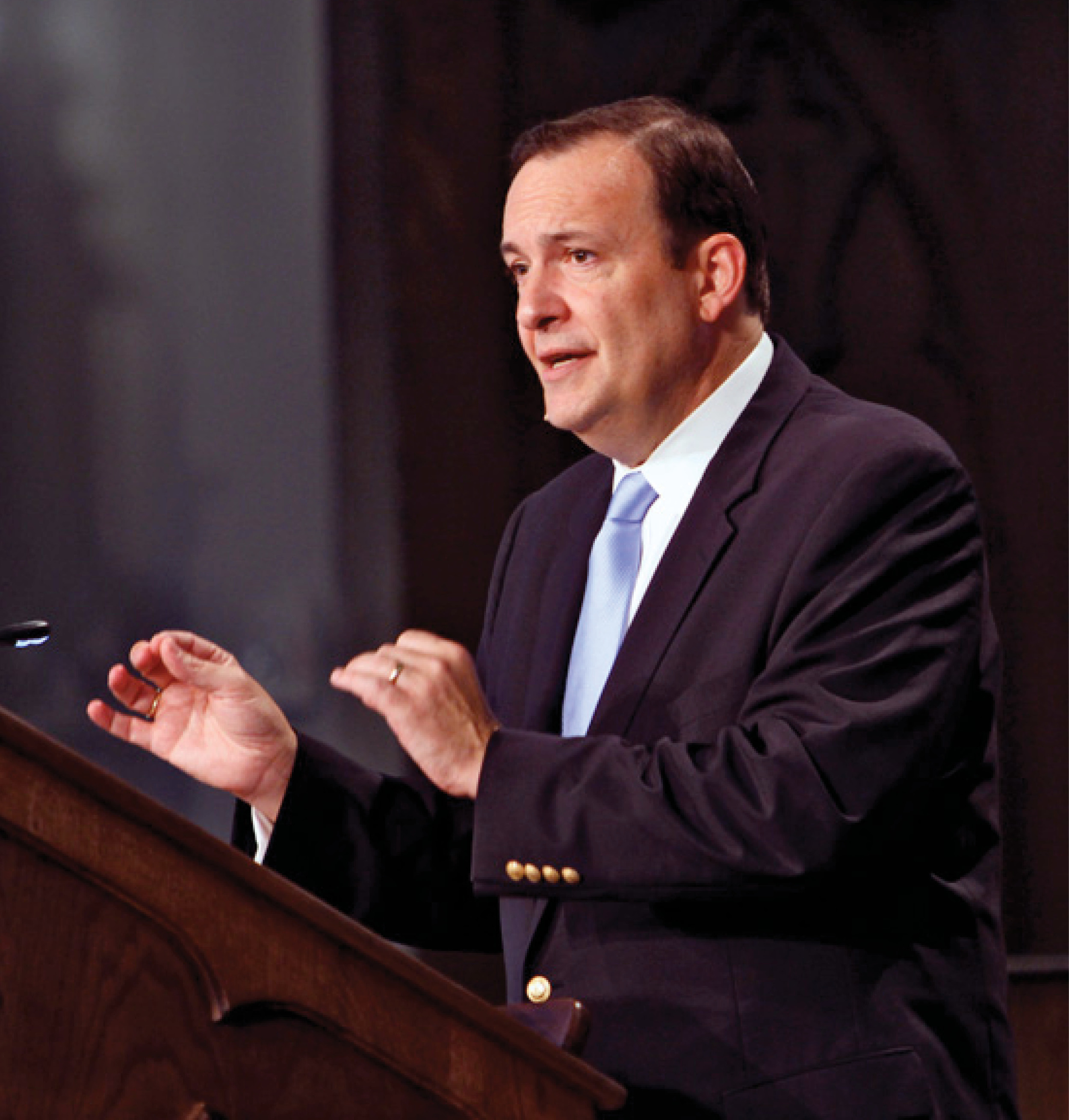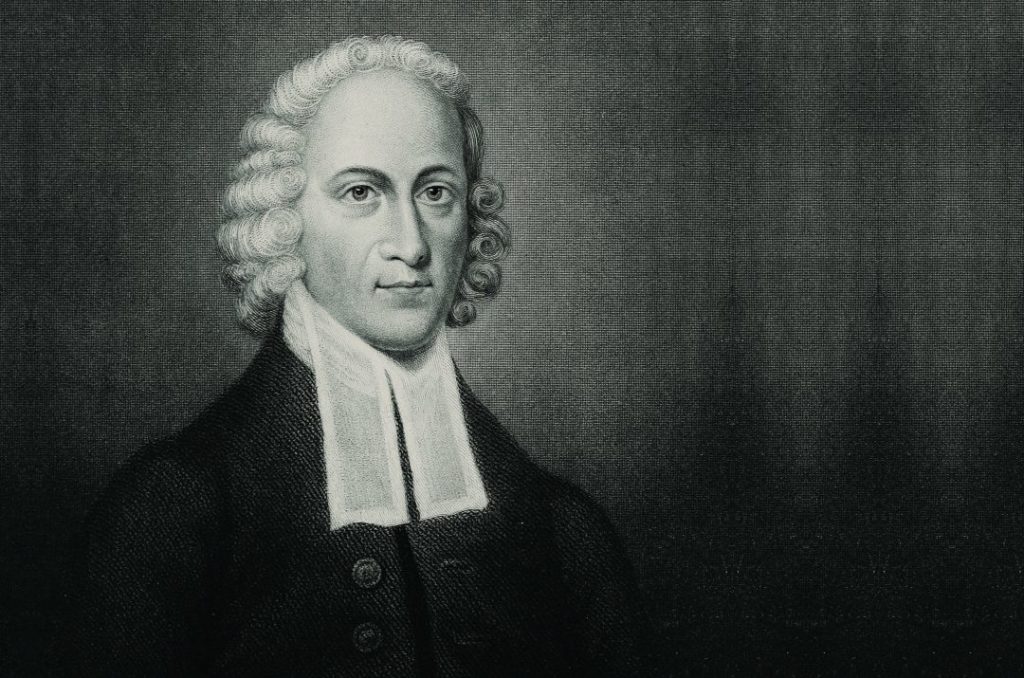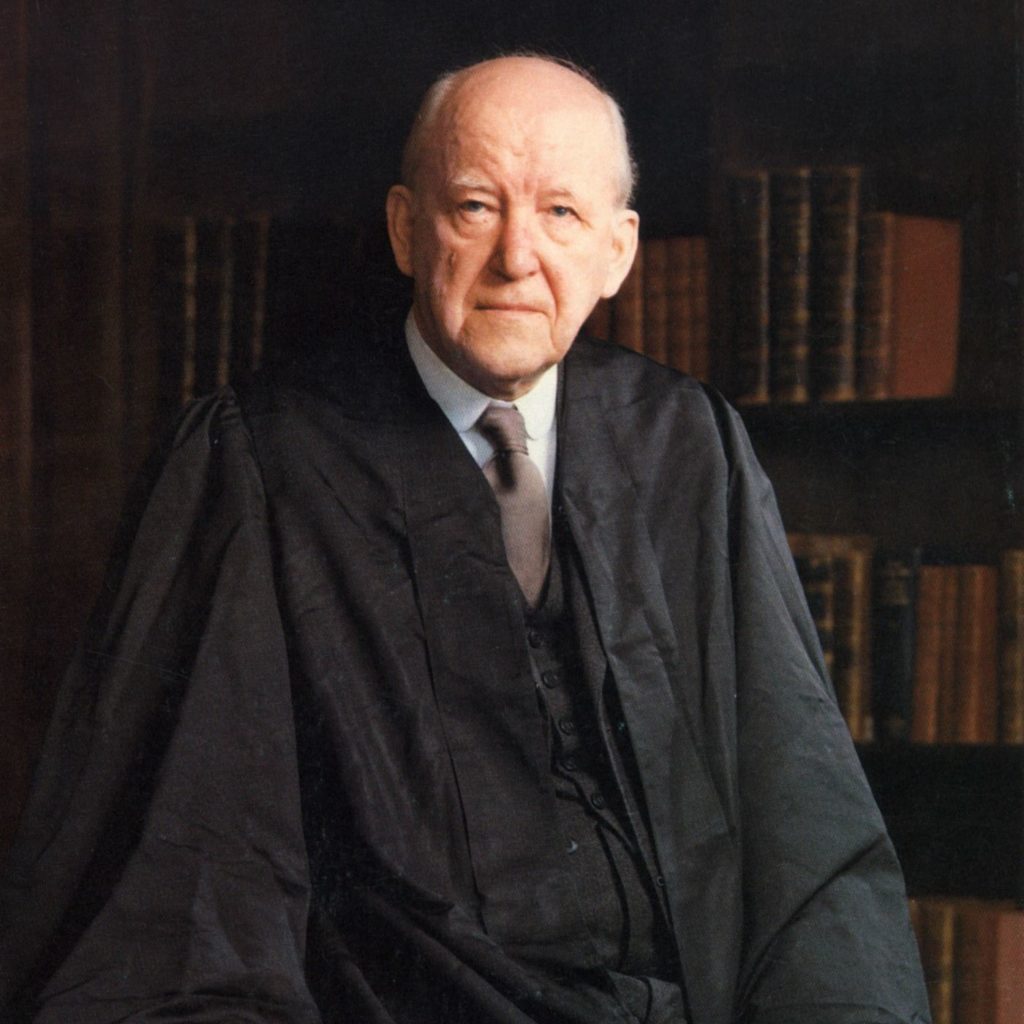In the March/April 2015 issue of Expositor magazine, Dr. Steven Lawson had the opportunity to sit with Dr. Ligon Duncan for a candid interview about preaching in a postmodern world. Below is the transcript that appeared in the magazine.

LIGON DUNCAN is the Chancellor of Reformed Theological Seminary and the John E. Richards Professor of Systematic and Historical Theology. A 1983 graduate of Furman University (B.A. in History), he received the M.Div. and M.A. (Historical Theology) from Covenant Theological Seminary. He earned his Ph.D. from the University of Edinburgh, New College, Scotland, in 1995. While in Scotland he also studied Systematic Theology at the Free Church of Scotland College (now Edinburgh Theological Seminary) with Professor Donald Macleod. Ligon served as the Senior Minister of the historic First Presbyterian Church in Jackson, MS, from 1996 until 2013. He and his wife Anne have two teenagers and reside in Jackson, MS.
What does it mean to say we are preaching in a “postmodern world”?
In part, it means that we live in a world where people doubt the reality of the truth. They believe the truth is a construct. It may be individually invented, it may be socially constructed, but they don’t believe it is rooted in the way things are. They do not believe in a truth that corresponds to reality, and that means preachers need to recognize that they are engaging with a new kind of generation of skeptics.
What are the major theological issues that an expositor confronts in a postmodern world?
One very significant issue, because of where we are in our cultural moment, is the shift in cultural views of Christian morality. One hundred years ago, when Bible-believing expositors had to deal with theological liberalism, which was skeptical of Christian supernaturalism, people tended to be critical of Christian orthodox dogma, but liked Christian ethics. They liked the Sermon on the Mount, but they wanted to strip the claims of Christ of their supernatural content and miraculous components. They just wanted to simply affirm the ethics of the Sermon on the Mount.
Now, we are preaching in a world that thinks it has a more elevated morality than Jesus. It looks down on Christian morality as narrow, bigoted, archaic, and even immoral. For instance, when an expositor preaches from the Old Testament, in the minds of many is the question, “Is the God of the Old Testament a genocidal maniac?” Therefore, the Christian expositor has a new set of challenges, and in fact, I like those challenges. When Christians were engaging people twenty-five years ago, the conversation was much different than it is today. At that point, we had to defend who wrote certain books of the Bible and answer questions on historical-critical issues. Now, people want to challenge Christianity on moral grounds because they know so little about the Bible. I am happy to engage in that discussion, for it gives us some incredible leverage.
To what extent should expositors today speak to cultural issues from the pulpit?
Christian ministers have always spoken to cultural issues. There have been differences as to how we did that, and there are certainly areas that are very tricky when an expositor addresses national or political issues. Recently, I was reading the Puritan Thomas Brooks. He was preaching before the English Parliament, using Isaiah 10:6 to just rip the Scottish Presbyterians to shreds for pulling out of their alliance with Oliver Cromwell after the execution of Charles I. We love Thomas Brooks, but he probably didn’t preach to the culture very well in that sermon.
So, there are some real pitfalls to avoid when trying to preach or address the culture. In striving to do this correctly, we can become lapdogs for the reigning political party or cultural trends, or we can fail to prophetically address cultural sins, majoring on minors and minoring on majors. In other words, there are numerous ways to go astray. However, it is important to remember that every time a pastor is preaching the Word of God, he is speaking into the culture.
One dominating trend within the last fifteen or twenty years is that younger men have not wanted to be as negative in their posture toward the culture as they perceive their spiritual fathers to have been. They perceive the tone of evangelicalism on issues such as abortion and homosexuality to be negative toward the culture, and they have wanted to strike a more ameliorating tone in their preaching. I understand why this is so, but I also want to say to some of our younger brothers that the culture knows they don’t like or agree with us, and there is no way to soften that. I would rather start out by saying to the culture, “You don’t like what I am going to say in four distinct ways, but I believe it anyway, and I’m going to preach it to you, and here is why you should accept it.” I don’t want to try to fool the culture by being ambiguous in those areas where Christian truth claims come into conflict with cultural norms or views.
As you travel and speak in many different venues, you have a unique perspective on the whole of the body of Christ. What is your current assessment of preaching today?
Given what we have come through in the last fifty years, especially the “seeker movements” of the 1970s, there are some real grounds for encouragement in terms of expository preaching. When I was in seminary, there were very few voices in the circles in which I found myself that championed expository preaching.
My professor of preaching was a real supporter of expository preaching, and even in our seminary context everybody dogged him for that. Most thought sermons were out, skits and sketches are in. However, I am happy to report that I see among a lot of young Reformed guys an understanding that we need to be very robust in our biblical exposition in preaching. Now, does that mean all the preaching I hear out there is the type I would want to commend? No. There are many distortions and patterns that are unhelpful. But at least I am encouraged that we get a large hearing among those Reformed men and that they are willing to listen to us make a case for how and why to do expository preaching. At least we have a shot to persuade the younger generation not only to do expository preaching, but to do it in particular, biblical ways.
If one of these young Reformed pastors came to you and said, “Help me,” what would be three things you would say to them that transcend the moment and flow down from godly, faithful men of the past?
One, I would say make it a habit to listen to a handful of great preachers regularly. Don’t copy them. Don’t try to be Lawson, Lloyd-Jones, Piper, MacArthur, Sproul—but you had better be listening to a steady diet of great, faithful, expository preaching. If you listen to four or five guys regularly, you will not end up mimicking them but you will be able to tell the difference between superficial non-expository story-telling and deep, rich biblical exposition.
Two, read Sinclair Ferguson’s Ten Commandments for Preachers. He gives excellent counsel.
Three, read Thomas Brooks’s Precious Remedies Against Satan’s Devices. Look at how he discriminates in his preaching, in the sense that he recognizes that not everybody in the congregation is dealing with the same problem or the same condition. If I have one criticism of preaching I hear among young Reformed guys today, it is they think everybody has the same problem and that there is a generic spiritual solution to that problem. What Brooks will teach you is that there are dozens of spiritual conditions and problems sitting under your nose every Sunday morning, and you had better be specific in how you address those problems. Therefore, every sermon is not going to be the same. With some, it’s as if they are preaching the same sermon from a different text every Sunday morning. When you read Brooks and the Puritans and listen to the giants, our spiritual problems are not one-size-fits-all, and the solution is not one-size-fits-all. The solution is always Jesus and grace and the gospel, but the way that that is applied is astoundingly varied in the Scriptures, and it should be in our preaching as well.
What would be one more area of counsel you would give our readers in the area of biblical preaching?
Our greatest lack in the Reformed world today is in application. I think there has been a recovery of redemptive-historical themes in preaching, sometimes to the exclusion of topical-systematic themes. There has been a recovery of a sense of the importance of exposition, but I still think our application lacks. When you hear people say, “Oh, Joel Osteen and Joyce Meyer have helped me so much in my Christian life,” you think to yourself, “What in the world is going on?” I have to say that as superficial as that preaching is and as wrong-headed as it is, the itch that it is scratching is two-fold. One, it is giving people hope—it may be giving them false hope, but it is giving them hope. Two, it is superficially speaking to their lives. As Reformed preachers, we need to know that false teaching is heretical, and we need to speak against it. But we also need to do a better job of preaching the Word in such a way that people don’t walk away from our preaching saying, “Joel Osteen and Joyce Meyer are more applicable to my life than that.” We need to be doing such a good job in our application that people don’t walk away wanting the expositor to show more of the relevance of the Scripture in their lives.
Who were some of the primary influences in your life who helped shape you into the person the Lord has matured you to be in your preaching?
I have so many debts in this area that it is difficult for me to enumerate them. From boyhood to my teenage years, I grew up under two faithful expositors. Gordon K. Reed was my pastor until I was eleven years old, and Paul Settle was my pastor through my teenage years and then in college and seminary. Both of those men got up on Sunday morning, opened the Bible, and applied it to my heart and life. It is probably incalculable the debt I owe to them. Most would have no idea who these men are; they are not famous, and they are not speaking at conferences, but they were faithful to drive the Word of God into my life through consistent exposition. Do not underestimate the power of the Word of God when you stand up on Sunday morning. You have no idea who may be sitting under your preaching.
My father and mother were also great influences upon me. My father was not a pastor, but he served as an elder of a local congregation, and my mother is a very well read and intelligent layperson. My mother is the one who handed me Martyn Lloyd-Jones. When I was an early teenager, she read Lloyd-Jones’s exposition on the Sermon on the Mount, and I remember her copy literally falling apart from her study of it. She was reading all the people that I started to read as a teenager: Martyn Lloyd-Jones, J. I. Packer, R. C. Sproul, Francis Schaeffer, and James Montgomery Boice.
When I went to Covenant Seminary, Dr. Robert G. Rayburn was my professor of preaching, and he was a powerful expository preacher. The reason I ended up going to Covenant is that Dr. Rayburn preached a Bible conference at our church in 1982, and he preached on the book of Malachi.The sermon series was called “Seven Signs of Serious Spiritual Sickness.” It was a seven-part exposition of the book of Malachi, and I thought, if a guy can make Malachi speak like that, I want to go sit under his preaching. Sitting under him while in seminary was invaluable in shaping me in those early years.
Then when I went to Scotland, I was able to sit under the ministries of heroes such as Eric Alexander, Sinclair Ferguson, William Still, and Jim Philip. Hearing those men expound the Scripture was huge for me. I got to sit under heroes and learn from heroes, and all of those feed into me. God allowed me to not only hear their preaching but also to have relationships with them. I learned firsthand that this is not just what they did in the pulpit; this way of life was real to them outside of the pulpit. All of those things feed into who I am today in the pulpit.






